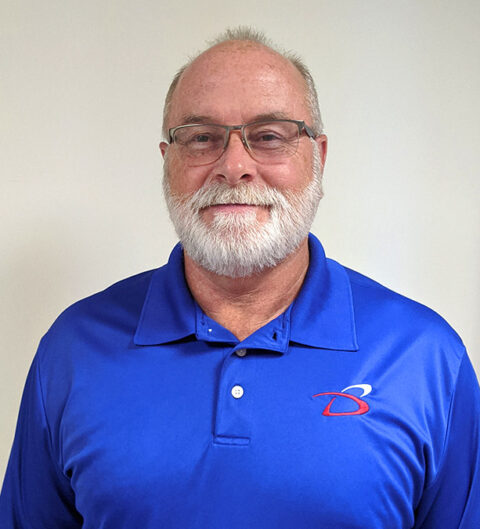“Through building relationships with each of my students, I feel I have had an influence on their lives. That is why I do what I do and the greatest reward for doing so.”
After 25 years as a Navy machinist, including a tour as an instructor while on active duty, Shawn Burns decided to become a teacher full time, starting out instructing young sailors in the basics of precision grinding, turret lathes and metal build-up, and advanced milling through an 18-week course. Burns, who earned a bachelor’s degree in workforce education and a graduate degree in occupational technology, transitioned to teach high school.
Since 2015, Burns has taught advanced manufacturing at Burton Center for Arts and Technology, a regional hub that provides career education to students from five area high schools, along with serving as an adjunct professor at a local community college. Burns’ high school students use project-based learning to design, prototype and manufacture products, all while learning collaboration and communication skills. First year students manufacture hammers, creating the handle from steel while learning to use a metal lathe, while advanced students manufacture parts.
Burns’ students earn college credit toward a mechatronics certificate or a two-year degree along with their National Institute for Metalworking Skills credentials. For the past two years, Burns’s students have participated in an apprenticeship program—working at three local manufacturing companies, earning apprenticeship credits and making up to $13 an hour. They also operate a Maker Fair each year for their local community, including designing small toys and knick-knacks to give away to children who attend.
During the onset of the COVID-19 pandemic this spring, Burns received a grant that will allow him to teach students programming and robotics remotely in the coming year. Despite school closures, Burns also made sure his students were able to receive their certifications.
“As a teacher that believes in the value of hands on learning, this year’s reduced class time will be a challenge. The positive is that it forces me to look at new ways of doing old things and being a little more open minded on how I approach the concepts. It will be a challenge but not an impossible one.”
